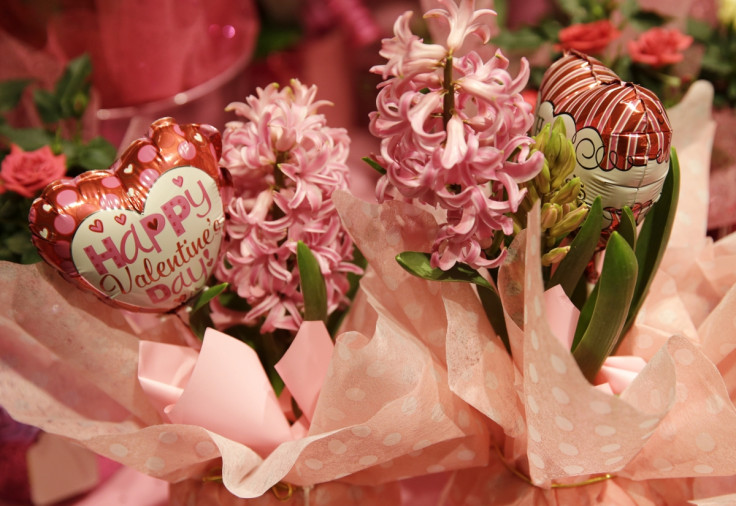Valentine's Day 2016: The importance of loving yourself on 14 February

The cry of the simpering singletons on Valentine's Day is always the same: "I just want to be loved." It's the day for sighs and teeth-gnashing from the romantically unattached and competitive smugness from those who are taken – but whoever said the day should just be about one very limiting definition of the word "love"?
Even romantic or sexual love can be sub-divided, varying from passionate love to companionate love via obsessive and nurturing, but why over-focus on mating partnerships at all? Romantic love might be the most written-about, sung-about and intense, but that intensity can involve intense emotional pain as well as pleasure. Other forms of love might be less dramatic – but that doesn't always mean they are less important in our lives.
We love our parents and our friends and we love our pets. We also love ourselves but sadly we'd often be way down the list of "loveables" in our lives and for many of us our feelings about ourselves are complex, negative and downright baffling. Self-hatred is a common problem that can lead to depression and anger, but whereas when we have negative feelings about someone else we try to deal with them, when it's ourselves we have a tendency to ignore those feelings or wallow in them, which will in turn make them worse.
To love and be loved by other people you must first love yourself.
Self-love really can be "the greatest love of all" and it is worth effort and analysis, as it is key to obtaining all the other loving relationships in our lives. Yet we rarely make enough effort to obtain it or improve it and when we do put it under the microscope we often confuse it with vanity and arrogance – which it isn't.
To love and be loved by other people you must first love yourself. Does that sound like the mantra of an arrogant egotist? Well it shouldn't, because self-love must never be confused with narcissism or other selfish behaviours. Ideal self-love involves workable levels of confidence and self-awareness – but never selfishness or the kind of constant navel-gazing self-obsession that can be so keenly promoted by gurus and life-coaches.
We live in an age of rabid self-promotion and vanity, with people bombarding social media with selfies and reports of all the minutest trivia of their lives. Facebook is awash with self-publicists who share photos and stories to suggest they are having perfect lives, meaning it's all too easy to assume that these people have it nailed in terms of self-love and self-confidence. In fact the opposite is usually true, as genuinely happy people rarely see the need to boast and these types of attention-seeking behaviours are more likely to be a symptom of vulnerability and desperately low self-esteem.

Genuine self-love of the useful kind comes with a hefty side-order of humour and an airy acknowledgment of all our flaws and randomness. It's a realistic love affair, not a besotted obsession. It's about making allowances and it's about never over-defining the perception of "who I am", because we are all a multitude of often conflicting personality traits and behaviours.
Self-love can mean self-disapproval at times and in visual terms it's about being comfortable with any "imperfections", rather than striving to attain the current ideal – although a bit of buffing up is always acceptable! It is about being honest, primarily to and about yourself. In many ways it's more like being your own tolerant and loving big sister than being your own adoring fan.
It is perfectly possible to love yourself but still strive to change for the better rather than just shrugging off criticism or mistakes with a cry of '"'m being myself, this is who I am". It's about having values but not being overly judgemental or intolerant of others. We are all work in progress in terms of self-development and skidding to a halt just to stand and admire a false sense of integrity is not the kind of self-love that works.
One of the best things about self-love is that it is contagious. We are all drawn to and attracted by that person in a room that signals the right levels of confidence because it is the type of easy-going confidence that makes us all feel better for having met them. Self-lovers make us feel better about ourselves not worse, which is why they should never be confused with the vampiric self-love of the narcissist, who sucks the confidence out of other people to feed their own self-obsessions.
Loving yourself in a genuine way makes it easy for others to love you. Egotists will deny they have flaws and faults, while people with low self-esteem will assume that those flaws and faults are all they are compiled of, meaning neither will make any effort to adapt to integrate with other people as they either think they don't need to change or improve to do so or that that there would be no point because it is doomed to failure. Self-love involves a more empathetic view of yourself and a much truer sense of how others really see you.
So while rushing off to buy a Valentine's card with the words 'I LOVE ME' across the front might not be the perfect way of expressing yourself, some acknowledgement of all your more lovely and lovable traits might be a start – plus a quiet but realistic pat on the back for all your efforts and achievements so far in your life. Charm and flattery are a traditional feature of Valentine's Day so why not turn a little of both on yourself for a change?
© Copyright IBTimes 2025. All rights reserved.




















